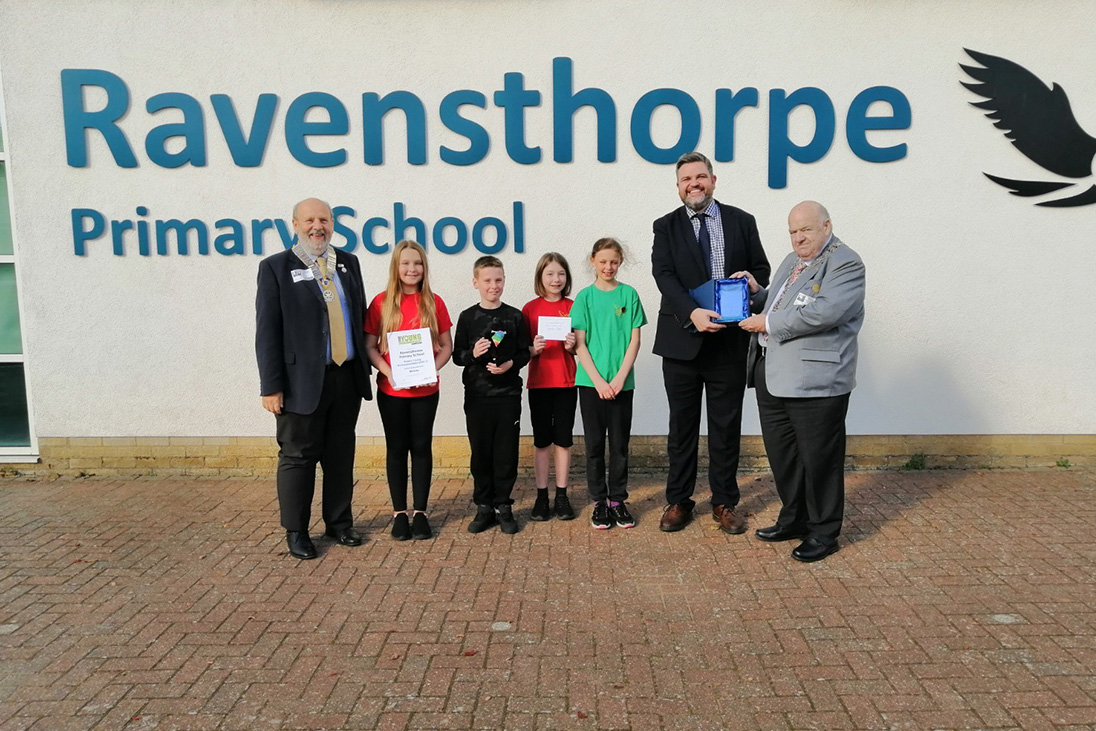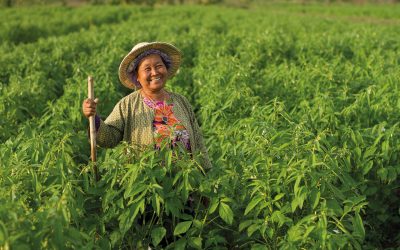Students from a Peterborough school have been crowned Rotary’s young environmentalist champions.
The youngsters from Ravensthorpe Primary School won the junior category for their work to reduce the school’s own impact on climate change.
Listen to this article
The team of Clark McConnell-Wilson, Dexter Hearn, Regen Ford and Kyra Dias created a video on their school’s work to become more environmentally friendly around recycling, composting and even planting their own vegetables.
The students have also been helping local businesses reduce their own outdoor furniture waste by offering it to an upcycling business.
They created a ‘Heron Habitat Helpers Handbook’ for schoolchildren to educate them about the Fenlands.”
Ravensthorpe won the junior section of Rotary’s Young Environmentalist Competition, sponsored by Veolia, which sought to showcase unique solutions to environmental problems with the theme of ‘climate change and carbon reduction’.
In the intermediate category, Oliver Foster, supported by Stratford-upon-Avon Rotary, won first prize for his project which reflected how trees reduce carbon dioxide pollution. He created a formula as well as designed a website to help calculate the details of carbon in individual trees through measurement.


Young Environmentalist winners with the Peterborough Ortons Rotary President Clive Doubleday and District Governor Dave Morris joined by the Ravensthorpe School Headteacher.
Oliver already has plans for the future development of the website.
He is planning on developing a tree identification key, implementing more tree species to the program and allowing for the website to be available to the general public.
The key aim is for town councils to provide the access to the website through their website, making people realise the consequences of felling trees.
King’s College School from Cambridge won the intermediate team prize with their heron project. The team consisted of Nico Cordonier Gehring, Thomas Langford, Orlaith Traynor-Bucknall and Morgan Hayes.
Team Heron created action plans identifying and reducing local sources of greenhouse gas emissions, engaging schools for climate action and inspiring the society for action.
The team aimed to address carbon reductions through enhancing local fenland ‘sinks’ and reducing carbon sources by inspiring schools and local communities to take action on the matter.
They created a ‘Heron Habitat Helpers Handbook’ for schoolchildren to educate them about the Fenlands.
The key aim is for town councils to provide the access to the website through their website, making people realise the consequences of felling trees.”
The Cambridge teenagers have also formed a Cambridge Schools Eco-Council from more than thirty schools across Cambridgeshire which enabled funding new eco-societies.
With their dedication and teamwork, the team managed to convince their local city as well as county councils to declare a ‘Climate Emergency’. They regularly hold Zoom meetings with the councillors to debate potential solutions to the global issue of climate change.


























































